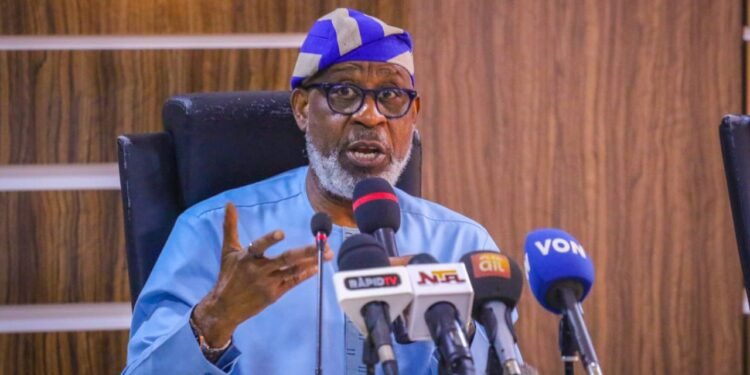FG has revoked 1,263 mineral licences over non-payment of fees and moves to clean up mining sector.
NewsOnline Nigeria reports that the Federal Government has revoked 1,263 mineral licences across the country in a sweeping move to sanitise Nigeria’s mining sector and rid it of speculators.
Minister of Solid Minerals Development, Dr. Dele Alake, approved the revocation following recommendations from the Nigerian Mining Cadastre Office (MCO), his media aide Segun Tomori confirmed in a statement on Sunday in Abuja.
ALSO: Stanbic IBTC’s Half-Year Results Mask Weak Revenue Streams Despite Profit Surge
The action follows an earlier warning in August, when Dr. Alake disclosed that over 1,000 dormant licences would soon be withdrawn as part of wider reforms.
Breakdown of Revoked Licences
The licences cancelled for non-payment of annual service fees include:
584 Exploration Licences (EL)
65 Mining Leases (ML)
144 Quarry Licences (QL)
470 Small-Scale Mining Licences (SSML)
Alake stressed that the annual service fee is the bare minimum requirement to demonstrate commitment to mining operations. “You don’t have to wait for us to revoke the licence. The law allows you to return it if you’re no longer interested,” he stated.
Crackdown on Speculators
The minister emphasised that the revocation targets speculators who hoard mining titles without developing them, thereby frustrating serious investors.
“The era of obtaining licences and keeping them in drawers for the highest bidder is over,” he warned.
Alake further disclosed that the list of defaulters will be handed over to the Economic and Financial Crimes Commission (EFCC) for enforcement.
“Revocation does not mean the debt is forgiven. The EFCC will ensure that defaulters either pay or face legal consequences,” he said.
Sector Reforms
According to MCO Director-General, Engr. Simon Nkom, 1,957 licence holders were originally listed in the June 19, 2025 Federal Government Gazette for non-compliance and given 30 days to settle outstanding obligations under the Minerals and Mining Act 2007.
With the latest move, a total of 3,794 mineral licences have been revoked since President Bola Tinubu assumed office. This includes 619 licences cancelled for non-payment and 912 for dormancy in 2024 alone.
Despite Nigeria’s vast mineral wealth, the sector contributes less than 1% to GDP, a situation the government blames on neglect, illegal mining, and speculative licence hoarding.
The Tinubu administration says it is laying a foundation for a reformed mining ecosystem that will create jobs, boost local industries, and attract foreign direct investment. Plans are also underway to establish the Nigerian Solid Minerals Corporation, which will be partly owned by the public through share offerings.
“We are laying the foundation for a new Nigeria where mineral resources build prosperity for our people,” Alake declared.




















